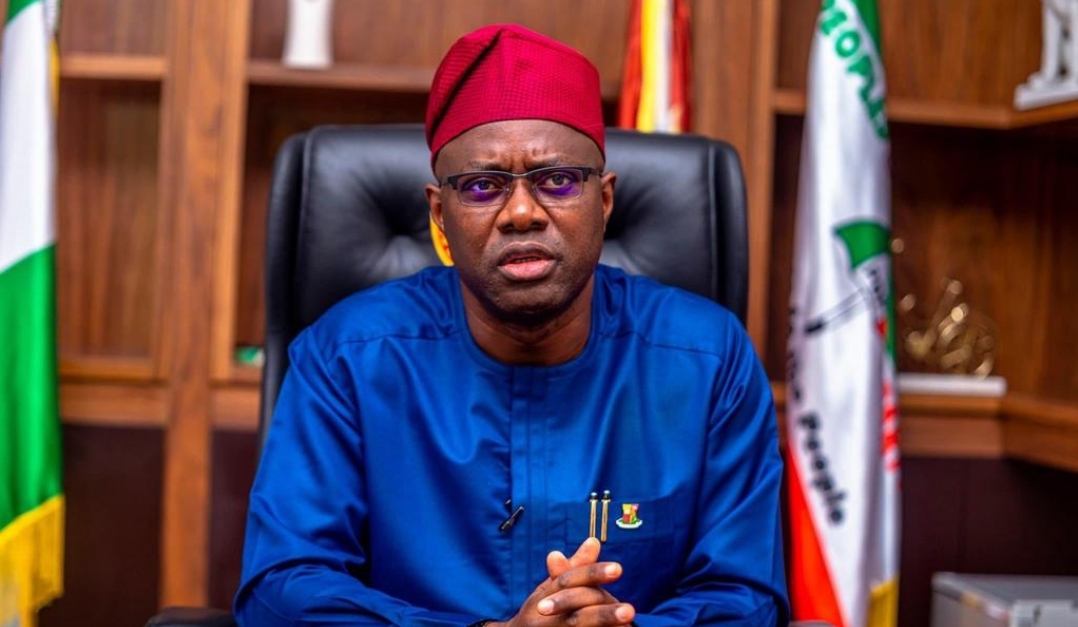Expert advances mitigation, adaptation strategies in tackling climate change

HAdewale Adetayo, an agrometeorologist, has recommended mitigation and adaptation strategies as part of measures to reduce the effects of climate change on the environment.
Mr. Adetayo, a researcher at IAR&T, Ibadan, made the recommendation in an interview with NAN on Thursday in Ibadan.
He said mitigation was designed to reduce the severity and/or prevent the global warming phenomenon while adaptation strategies were aimed at assisting the vulnerable to cope with and reduce the effects.
Mitigation strategies include improved practices in agriculture and forestry, reduction of fossil fuel energy utilisation and switching to cleaner renewable energy sources, Mr. Adetayo explained.
The expert added that mitigation strategies included ensuring energy efficiency in industrial, residential and commercial areas, and restructuring urban planning and development (especially transportation and buildings).
He defined adaptation strategies to include sustainable soil and water resources management, use of drought-resistant crops in agriculture and rainwater harvesting in drought-prone areas.
He said that adaptation strategies also included more spending on irrigation, avoidance of vulnerable areas for housing, and use of better flood defences.
Mr. Adetayo stated that for a country like Nigeria, highly vulnerable to the effects of climate change, understanding farmers’ responses to climatic variation would be crucial.
“The records of socio-economic losses incurred as a result of extreme weather and climate conditions show an increasing trend in the financial losses.
“The country needs further assistance from agricultural research institutes on appropriate technologies on sustainable soil-water management vis-a-vis building capacity for research relevant to society.
“Encouraging involvement of private corporations in funding climate research for societal benefit, integrating climate knowledge into educational curriculum and integrating climate knowledge into development planning by the three tiers of government, are all paramount,” he said.
The agrometeorologist said African countries, such as Nigeria, with economies largely based on weather-sensitive agricultural production systems are particularly vulnerable to climate change.
Adetayo noted that the impacts of climate change are particularly high for the poor who are most vulnerable and tend to live in environments that are most susceptible to droughts, floods and other extreme weather conditions.
“Just as the climatic changes are affecting agricultural productivity, the steadily increasing human population has led to a rise in the demand for food; therefore, more land comes under agricultural cultivation, hence, more pressure on the natural ecosystem.
“The overall agricultural productivity could decrease during the next century, leading to hunger and malnutrition in vulnerable areas.
“Thus, there is a need to ensure that agriculture and agricultural practices adapt to the changing climate to ensure food security for human survival,” he said.
(NAN)
We have recently deactivated our website's comment provider in favour of other channels of distribution and commentary. We encourage you to join the conversation on our stories via our Facebook, Twitter and other social media pages.
More from Peoples Gazette

Politics
Katsina youths pledge to deliver over 2 million votes to Atiku
“Katsina State is Atiku’s political base because it is his second home.”

Sport
FIFA announces multi-year partnership with Saudi-owned oil company Aramco
The deal with Saudi Arabia-owned Aramco is in effect until 2027, covering the 2026 FIFA World Cup in the U.S., Canada, and Mexico and the Women’s World Cup the following year.

Heading 5
Again, JAMB extends 2024 direct entry registration
JAMB announced the commencement of the registration for the 2024 direct entry from February 28 to March 28 but extended it by two weeks, ending April 11.

Ibadan
Oyo government declares Friday half-working for LG polls
The statement indicated that the half working day was in connection with the local government elections, scheduled for Saturday.

Sport
Crystal Palace want £60 million to sell Eberechi Eze, Michael Olise
Any deal to sign either player will largely depend on them pushing for a move to a bigger club or Palace receiving tempting offers.

States
FG to begin demolition for first 3km of Lagos-Calabar highway Saturday
The 700km Lagos-Calabar coastal highway project is designed to connect Lagos to Cross River.

Showbiz
New York court overturns Harvey Weinstein’s sex crimes conviction
The prosecution relied on several additional witnesses who accused Weinstein of sexual assault to show that his offences followed a recurring pattern.








